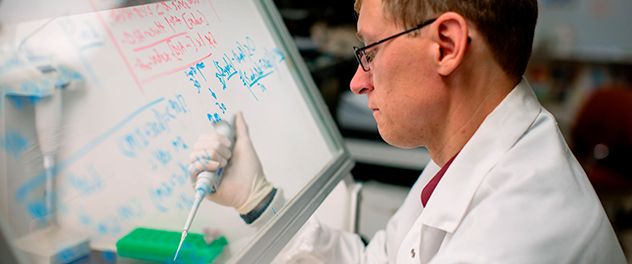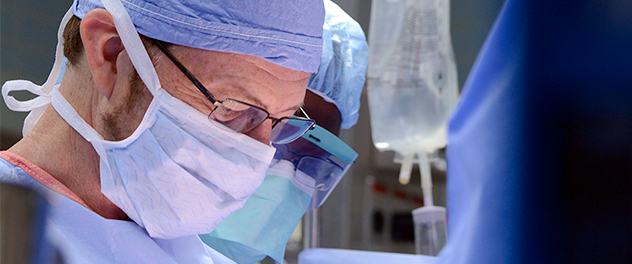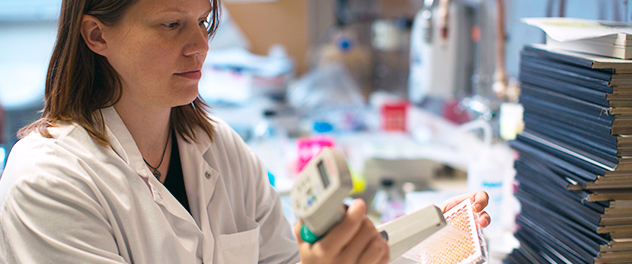-

Overcoming antibody barriers
We're advancing the science of transplantation to overcome antibody barriers and achieve successful kidney transplants from living donors despite different blood groups and positive crossmatches. Read more.
-

Improving long-term outcomes
We're learning more about how the immune system interacts with the graft so that we can help ensure that a transplanted organ lasts a lifetime, reducing the need for second transplants. Read more.
-

Leveraging partnerships
Our transplant consortium facilitates innovative clinical and translational research in solid organ transplant through partnerships among like-minded clinical centers, researchers, industry and funding agencies. Read more.
Overview
The Transplant Immunology Program is working toward a better understanding of the complex processes of chronic immune-mediated injury to pave the way to novel clinical approaches for better patient outcomes.
By developing new therapies and redesigning clinical trials, our program is reducing antibody-related rejection and the need for second transplants because of organ failure.
Our transplant immunology team is changing patient care by:
- Improving long-term kidney transplant survival
- Overcoming antibody rejection
- Improving patient compliance
- Collaborating with a worldwide clinical research community
- Restructuring clinical trials with connections in the scientific community, regulatory agencies and the pharmaceutical industry
While progress has been made in understanding chronic injury and graft survival, identifying the molecular mechanisms for transplant failure has proved difficult. To improve outcomes for transplant patients, the Transplant Immunology Program is studying how the immune system interacts with grafts. Research projects within our program focus on antibody barriers and on long-term outcomes for transplant recipients.
Our overarching goal is to perform discovery research that expedites the development of new therapies for transplant recipients. The key lies in identifying the molecular mechanisms affecting the progression of chronic injury to transplanted organs.
Leading the charge is program director Mark D. Stegall, M.D., who has spent more than 20 years conducting translational research, from basic immunology to multicenter clinical trials. He guides a research team focused on understanding the biology behind two major challenges in transplantation: late renal allograft loss, and antibodies against donor human leukocyte antigen, both of which present barriers to the successful transplantation of kidneys, hearts and lungs.
The Transplant Immunology Program is part of the Transplant Research Center at Mayo Clinic. Fully embracing the concept of team science, our program has forged a strong worldwide collaborative network that includes the scientific community, the pharmaceutical industry and regulatory agencies. A growing transplant consortium allows us to enroll patients in clinical trials much quicker.
By studying the important problems that need to be addressed and standardizing the methods used to study these problems, new transplant treatments can be developed and measured.
About Dr. Stegall
Dr. Stegall is an esteemed physician-scientist at Mayo Clinic in Rochester, Minnesota. His main research interests are improving long-term outcomes in kidney transplant and developing new treatments for antibody rejection in kidney transplant. Dr. Stegall is the James C. Masson Professor of Surgery Research and a professor of surgery at Mayo Clinic College of Medicine and Science. He also serves as principal investigator on a number of clinical studies.